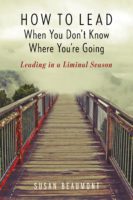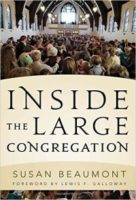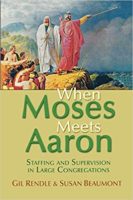“This is a congregation, not a business.” If only I had a dollar for every time a congregational leader made this bold assertion in my presence. Typically, right after making this claim leaders go on to conduct the meeting at hand, exactly as if the church were a business. Oh yes, someone begins by offering a 5 minute devotional, followed by a prayer, but then it is business as usual.
We form an agenda. Within the agenda are a variety of problems to be solved, or decisions to be made. In each instance, we frame a problem statement or decision query, name the underlying issues, propose a solution, argue the pros and cons, deal with the outliers, call for a vote, record the outcome and move on. This is decision making.
Increasingly as I work with groups in decision making I ask them what their discernment practices include. I am usually met with a “deer in the headlights” response to that question. Our leaders have only vague notions of what the differences between decision making and discernment include, and they have no idea how to actually invite discernment in a group context.
Thomas H Green, S.J., says, “Many people today express well-grounded misgivings about community discernment, and even feel uncomfortable with the word, ‘discernment.’ It can easily be a polite and pious name for a ‘tyranny of the majority,’ a way of attaching the Lord’s name and authority to what most of the group want, or believe he [sic] must want. If this happens, then, as we have seen, ‘discernment’ becomes a way of manipulating God to agree with our convictions concerning action and decision making.”
Where do we begin to identify the difference between group decision making and authentic communal discernment? We begin with the basic stance of freedom, unknowing, or indifference that underlies group discernment processes. Group decision making typically involves a cadre of leaders who are individually invested in particular outcomes, who come together to iron out and resolve their attachments and differences, to represent the good of the whole. By contrast, authentic communal discernment requires sincere and committed prayers who are unencumbered by preconceived notions and outcomes. To move from deciding to discerning, we must free ourselves from inordinate attachments. We must assume an indifference to anything but the will of the divine One as discovered collectively by the group; setting aside matters of ego, politics, personal opinion, and vested interests.
So, how do we invite leaders to adopt a stance of unknowing? We invite them, of course, to attend to their personal prayer lives and to build their personal discernment muscles. But beyond this we must help groups with their organizational detachment process.
Of late, I have been working with some concepts from Otto Scharmer (Theory U) to help leaders move toward discernment. Scharmer identifies three internal leadership voices that often stand in the way of authentic listening and presencing in organizational life. He calls these the Voice of Judgment, the Voice of Fear, and the Voice of Cynicism.
The Voice of Judgment blocks the gate to an open mind. It is the voice inside your head that passes judgment on the people and events surrounding the discussion at hand. When we entertain the voice of judgment we protect ourselves from ideas and thought patterns that might be oppositional to our own point of view. The judgment voice may sound something like this: “This leader doesn’t know how to elicit support from others, why should I trust her with this important agenda item?”
The Voice of Cynicism blocks the gate to an open heart. This voice is engaged in the emotional act of distancing. It prevents you from becoming too vulnerable. It sounds something like this: “Nothing will change, we make decisions all of the time that never get implemented. This time will be no different.”
Finally, the Voice of Fear blocks the gate to an open will. It seeks to prevent you from letting go of what you have and who you are. It seeks to protect you from insecurity, from being ostracized, from dying to yourself. It sounds something like this, “Others here are protecting their own best interest. If I don’t look out for my own interests, my area of ministry is likely to get the short end of the stick in the budgeting process.”
If a group wants to move from decision making to discernment, the participants in the group must individually and collectively release their voices of judgment, cynicism and fear.
I’ve been experimenting with a journaling process that invites members into prayerful silence, followed by writing from the perspective of each of the three voices. We begin by framing the dialogue topic. Then I invite each participant to adopt the voice of judgment with regard to the topic and to write only from that voice for a period of 5 minutes. We take a momentary rest and then repeat the exercise assuming the voice of cynicism, and finally the voice of fear. When the writing exercise is complete I lead the group through a guided meditation, inviting the Divine to release us from each of the voices. We follow this with a period of silence.
We can never fully release ourselves from the vested voices in our head, but I find that a group is in a remarkably different frame of mind having completed this exercise; more prayerfully present, and more likely to lead with a discerning head and heart.
Susan Beaumont is a coach, educator, and consultant who has worked with hundreds of faith communities across the United States and Canada. Susan is known for working at the intersection of organizational health and spiritual vitality. She specializes in large church dynamics, staff team health, board development, and leadership during seasons of transition.
With both an M.B.A. and an M.Div., Susan blends business acumen with spiritual practice. She moves naturally between decision-making and discernment, connecting the soul of the leader with the soul of the institution. You can read more about her ministry at susanbeaumont.com.



